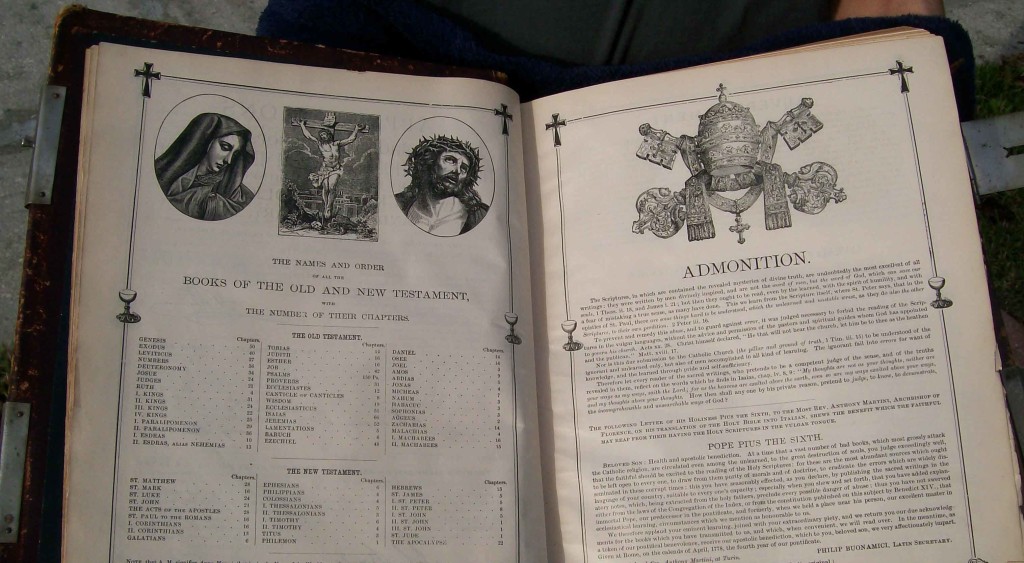Bible Alone? Part 3
For the last two days I have been looking at the Protestant doctrine of Sola Scriptura. Yesterday I looked at the problem of doctrinal unity and interpretation created by this doctrine. Today I would like to look at the other problem which I saw as I began to reconsider my allegiance to this belief.
Problem #2: The Bible’s origin and teaching
The second problem which really started to trouble me was the Bible itself. A monk from my home parish asked me the question: “Which came first? The Church or the Bible?”. The answer was obvious – the Church came first.
I recall another time when I was ranting about Catholics not reading their Bibles (I still do!). This monk asked me how the early Christians grew in their faith without each having access to their own leather-bound New Jerusalem Bible.
My thinking had been somewhat backwards and these two questions gave me pause for thought.
New Testament Life before the New Testament
I had to deal with the problem that the Church came first, not the Bible. I remember really wrestling over the question “What did the Church do did in the years prior to the writing and canonisation of Scripture?”. The first Pauline Epistle didn’t appear for about 20 years after the Ascension; the first Gospel for at least another 15 years after that, the last book of the Bible for at least another 35 years after that. It’s hundreds of years before the canon is officially ratified. How could the Church operate without the New Testament?
The explosive question of the canon
I started asking myself some very basic questions about the Bible itself. How did I know that Mark wrote the Gospel attributed to him? There is no divinely-inspired Table Of Contents – was I certain that all the correct books were in there? Was I sure that nothing extraneous had been included and nothing accidentally omitted?

Not this kind of canon
Luther tried to throw out the Epistle of James because it interfered with his personal theology. Why was he wrong in trying to do that? Who would have the authority to say what books should and should not be in the Bible?

Not this kind of canon either
Sola Scriptura didn’t help much with these questions since, to answer these questions, one had to look outside of the Bible. I would later see that Church Authority, Apostolic Succession, Sacred Tradition and Councils would give me the answers I needed.

Attaboy!
Scripture on Scripture
I next started to ask myself: is the doctrine of Sola Scriptura Biblical? It seemed like a bit of a daft question, but the more I thought about it, the more untenable it became. The foundation of truth at my local Protestant congregation was the Bible, but what did the Bible say was the foundation of truth? I remember feeling very uncomfortable as I read these words of Paul:
...if I am delayed, you may know how one ought to behave in the household of God, which is the church of the living God, the pillar and bulwark of the truth – 1 Timothy 3:15
I could not think of a single passage of Scripture where it said that it, Scripture, is the only final, infallible authority for the faith. Sure, Scripture is authoritative and describes itself as “God-breathed” and “useful for teaching, rebuking, …” (2 Timothy 3:15-17) sure, but never the “only source”.
Tomorrow I’ll look at what I found to be the alternative to Sola Scriptura…
Pingback: Bible Alone? Part 3 - CATHOLIC FEAST - Every day is a Celebration
Pingback: Bible Alone? Part 3 | Catholic Defender Daily